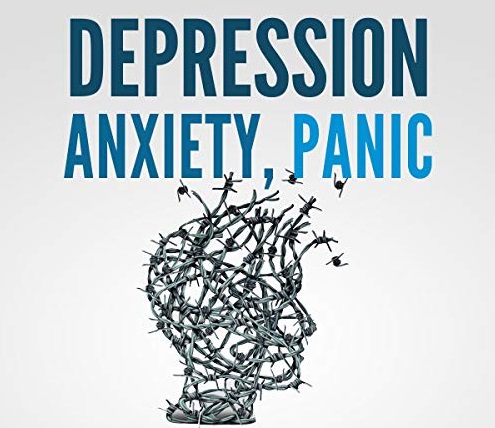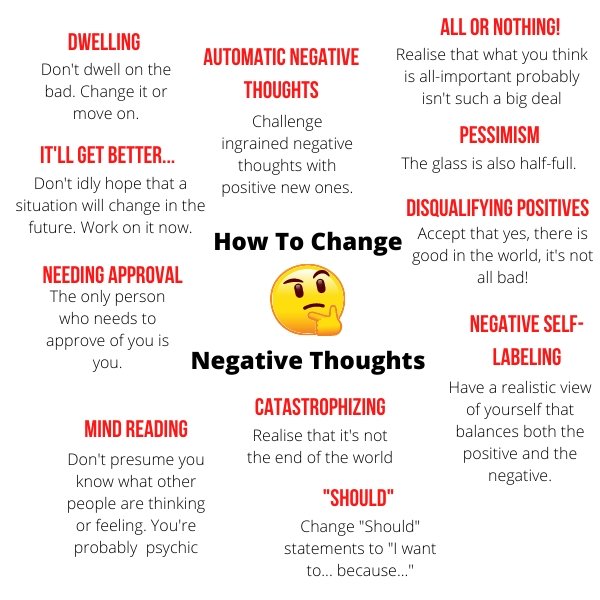
Key strategies to maintaining proper mental health when being a caregiver: Anxiety can hit you at anytime, anywhere and frequently!

Adult caregivers exemplify remarkable selflessness in their commitment to loved ones, expressing unwavering dedication through sacrifice. They prioritize their loved ones’ needs above their own, demonstrating boundless compassion and empathy. Driven by a deep sense of responsibility and love, caregivers navigate challenges with grace, willingly setting aside personal desires for the well-being, safety, and happiness of their loved ones. Despite facing physical and emotional exhaustion, they give generously to enhance the quality of life, extending their selflessness beyond routine caregiving tasks. This profound expression of love showcases the depth of their compassion and the extraordinary lengths they go for their loved ones’ comfort and happiness.

Caregiving, while a noble and fulfilling role, can also come at a price, particularly in terms of anxiety. The responsibilities and challenges associated with caregiving can contribute to heightened anxiety levels for caregivers. Caregiving demands significant emotional, physical, and sometimes financial investments. The constant worry about the well-being of a loved one, coupled with the challenges of providing care, can lead to chronic stress and anxiety. Caregivers often face complex medical or emotional situations, difficult decisions, and the ongoing pressure to meet the needs of their loved ones. Moreover, caregivers may feel isolated or unsupported, lacking a robust network to share their experiences or seek assistance. The emotional toll of witnessing the suffering or decline of a loved one can be overwhelming, contributing to a sense of helplessness and anxiety. Below are some strategies that can help adult caregivers cope with anxiety and still keep their sanity:
- Self-Care Routine:
• Establish a consistent self-care routine that includes activities you enjoy, such as exercise, reading, or taking a leisurely walk.
• Prioritize sufficient sleep to ensure you are well-rested and better equipped to handle stress. - Healthy Lifestyle Choices:
• Maintain a balanced diet with nutritious food to support physical and mental well-being.
• Limit caffeine and sugar intake, as they can contribute to increased anxiety. - Mindfulness and Relaxation Techniques:
• Practice mindfulness meditation or deep-breathing exercises to stay present and calm the mind.
• Consider activities like yoga or tai chi that promote relaxation and stress reduction. - Set Realistic Expectations:
• Establish achievable goals and be realistic about what you can accomplish.
• Break larger tasks into smaller, more manageable steps to reduce feelings of overwhelm. - Effective Time Management:
• Prioritize tasks and organize your schedule to avoid unnecessary stress.
• Delegate responsibilities when possible, recognizing that you don’t have to do everything on your own. - Seek Support:
• Connect with friends, family, or support groups to share your feelings and experiences.
• Consider professional counseling or therapy to have a safe space to discuss and manage anxiety. - Boundaries:
• Set clear boundaries between work and personal life to prevent burnout.
• Learn to say no when necessary and communicate your limits to others. - Positive Affirmations:
• Replace negative thoughts with positive affirmations to cultivate a more optimistic mindset.
• Focus on your strengths and acknowledge your accomplishments, no matter how small. - Stay Informed:
• Educate yourself about anxiety, its triggers, and coping mechanisms to better understand and manage your own feelings.
• Attend workshops or seek resources on stress management techniques. - Professional Help:
• If anxiety becomes overwhelming, consider seeking help from a mental health professional.
• Therapy or counseling can provide valuable tools and strategies to navigate and overcome anxiety.
Remember, everyone’s experience with anxiety is unique, and finding what works best for you may involve a combination of these strategies. It’s essential to prioritize your mental health and well-being as a caregiver. While caregiving is a deeply rewarding experience, the associated challenges, demands, and emotional strain can take a toll on caregivers, potentially leading to anxiety. It is essential for caregivers to recognize the importance of self-care, seek support, and prioritize their own mental health to effectively navigate the challenges that come with caregiving.
Learn More
Taking self-criticism to the extreme: Strategies on how to exit this loop of negative self-thinking
Most psychologists would agree with this statement: “We are our own worst self-critic”. Thich Nhat Hanh shared a beautiful quote: “To be beautiful means to be yourself. You don’t need to be accepted by others. You need to accept yourself”
This quote highlights the significance of setting high standards and pursuing personal growth by accepting oneself without relying on validation from others. However, it cautions against self-imposed expectations that result in self-criticism and negative self-talk. It emphasizes how many individuals carry regrets and unfulfilled aspirations due to feelings of un-worthiness or un-deservingness.
Our internal dialogue often tends to be more critical compared to how we communicate with others. This pattern of negative self-talk can be incredibly damaging, often more than we realize. The issue lies in the fact that we have become so accustomed to this negative inner dialogue that we are not even conscious of it. Despite our lack of awareness, our mental and physical well-being are still affected by this harmful self-talk.
The aim of avoiding self-criticism is to learn to value oneself based on personal beliefs rather than seeking external validation. Breaking free from a shame-based self-image and the need for self-criticism and hateful self-talk becomes crucial in order to avoid falling into depression, which can hinder progress and success. There are several strategies for silencing the inner critic and breaking free from this cycle of detrimental thoughts that restrict belief in one’s own potential for success. The ultimate goal is to develop self-approval, self-love, positive relationships, and a sense of self-worth.

Strategy 1: What are your authentic wants and desires? What activities, passions, goals, needs, and wishes truly resonate with you? Take the time to identify and make a list of these, and honestly evaluate whether pursuing them would genuinely bring you a sense of fulfillment and joy.

Strategy 2: Practice mindfulness by observing your actions, reactions, and how others respond to you without passing judgment. Embrace self-acceptance and refrain from labeling yourself negatively. Deliberately cultivate positive emotions to break free from the habit of labeling yourself based on feelings of shame.

Strategy 3: Reduce self-criticism by acknowledging that making mistakes is a normal part of being human and doesn’t diminish your worth or intelligence. Develop a more objective perspective on your abilities and actions through self-compassion. Actively nurture positive emotions and gradually increase self-approval.

Strategy 4: Pay attention to your internal dialogue and be mindful of the language you use, as language holds significant power. Your internal dialogue is a reflection of your beliefs about reality. Monitor and consciously observe how you speak to yourself because your mind is receptive. If you wish to change your emotional state, simply reframe your thoughts and say, “I won’t allow these feeling of negative self-talk” or “I choose to only accept positive affirmation to enter my mind.” By doing so, you empower yourself to take control of your emotions.

Strategy 5: involve identifying your disappointments by understanding where they come from, examining the expectations that have led to those disappointments (whether self-imposed or from others), and evaluating if those expectations are truly valid. (obviously the image listed above is just a sarcastic narrative to what severe disappointment may mean to some people)
There is no magic solution to completely reverse the feelings of self-criticism and ongoing self-inflicted torment we subject ourselves to. Through constant comparisons with others on social media, we intensify this process, leading to heightened levels of anxiety and depression. We consciously allow this to happen, and we cannot blame anyone else but ourselves for permitting it. While it is true that some individuals have to deal with negative and toxic coworkers or family members who constantly belittle them, most of the time we inflict these hardships upon ourselves. It is important to initiate changes today to prevent long-term mental harm that can hinder our success and undermine our well-being.
Learn More